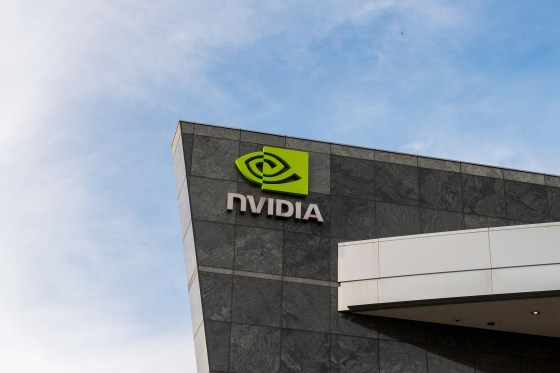A series of fresh trade warnings barreled into Wall Street on Wednesday, pushing down the three major U.S. stock indexes in the latest sign of turbulence from White House policies.
The trading day opened with a sell-off as two artificial intelligence chipmakers warned separately that U.S. export controls would drive up their costs. Later in the day, Federal Reserve Chairman Jerome Powell's comments that tariffs threaten to fuel inflation added to the market downturn.
Nvidia said late Tuesday that it expects to record a $5.5 billion charge to comply with a new Trump administration rule addressing “the risk that [the chips] may be used in, or diverted to, a supercomputer in China.” Nvidia said Trump officials indicated the curbs would be in effect “for the indefinite future.”
Nvidia's stock closed 7% lower Wednesday as investors dumped shares of the company, along with those of fellow chipmakers and many other tech firms. AMD, one of Nvidia’s top competitors, also shed more than 7% after it disclosed it would take a hit from the updated export controls, warning of an $800 million charge related to its MI308 GPU chip. Shares of other chipmakers slid, as well, with ASML closing down 7% and Micron, Broadcom and Marvell each falling more than 2%.
The tech-heavy Nasdaq closed 3% lower Wednesday, while the S&P 500 declined 2.2%. The Dow Jones Industrial Average fell 1.7%, or 700 points.
Investors were still digesting the chip industry warnings Wednesday afternoon when Powell said in public remarks that White House tariff policies could “generate at least a temporary rise in inflation.”
Powell said that “the inflationary effects could also be more persistent” and that “the data in hand so far suggest that growth has slowed in the first quarter from last year’s solid pace.” He added, “For the time being, we are well-positioned to wait for greater clarity before considering any adjustments to our policy stance.”
His comments sent stock indexes to fresh lows as investors bet on the Fed’s holding interest rates steady. Economists at JPMorgan reiterated their prediction that the central bank won't lower rates again until September.
Major companies typically record charges for one-time expenses or expected reductions in earnings. In warning of its latest one, Nvidia said the export curbs would affect its H20 processors, a type of AI chip that it designed specifically to comply with Biden-era regulations for selling tech products to China. CNBC reported the H20 line generated an estimated $12 billion to $15 billion in revenue last year.
Nvidia's stock dived two days after it announced plans to manufacture some of its AI chips in the United States for the first time. It said Monday that it’s developing facilities in Arizona and Texas, news that the White House hailed as “the Trump Effect in action.”
Nvidia, now worth nearly $3 trillion thanks to widespread adoption of its chips by businesses racing to boost their AI capabilities, has become a bellwether for the broader market.
Its shares have plunged 23% this year as President Donald Trump's trade war expands. Trump has escalated tensions with China, which now faces 145% tariffs, and he signaled over the weekend that new import taxes on foreign semiconductors are coming soon.
Wednesday’s stock drop erased nearly $300 billion from Nvidia’s market value, and the stock was the worst performer on the Nasdaq 100 and S&P 500 indexes.
Wall Street has endured a volatile few weeks since Trump's announcement on April 2 of sweeping new tariffs, an unprecedented slate of trade barriers that he temporarily throttled back just days later.
The S&P 500 is still down around 8% since that rollout. The Nasdaq is down nearly 9%, and the Dow remains about 6.5% lower.


